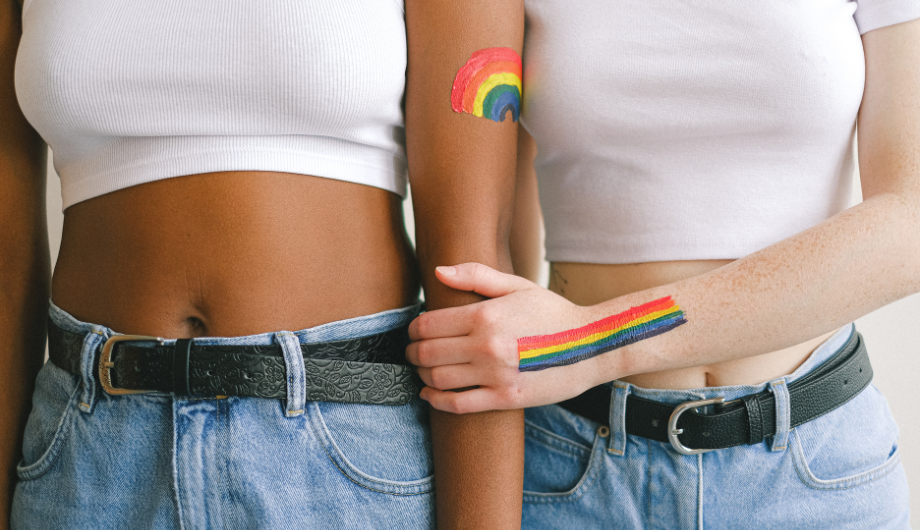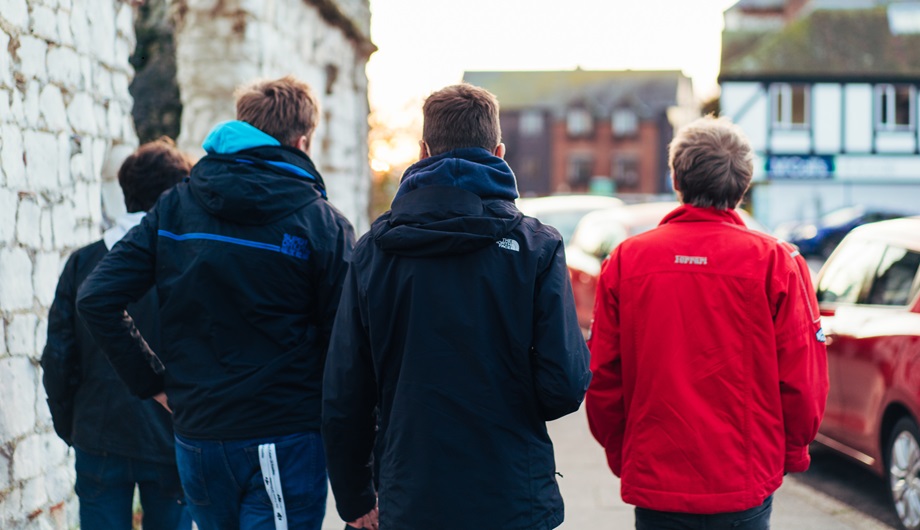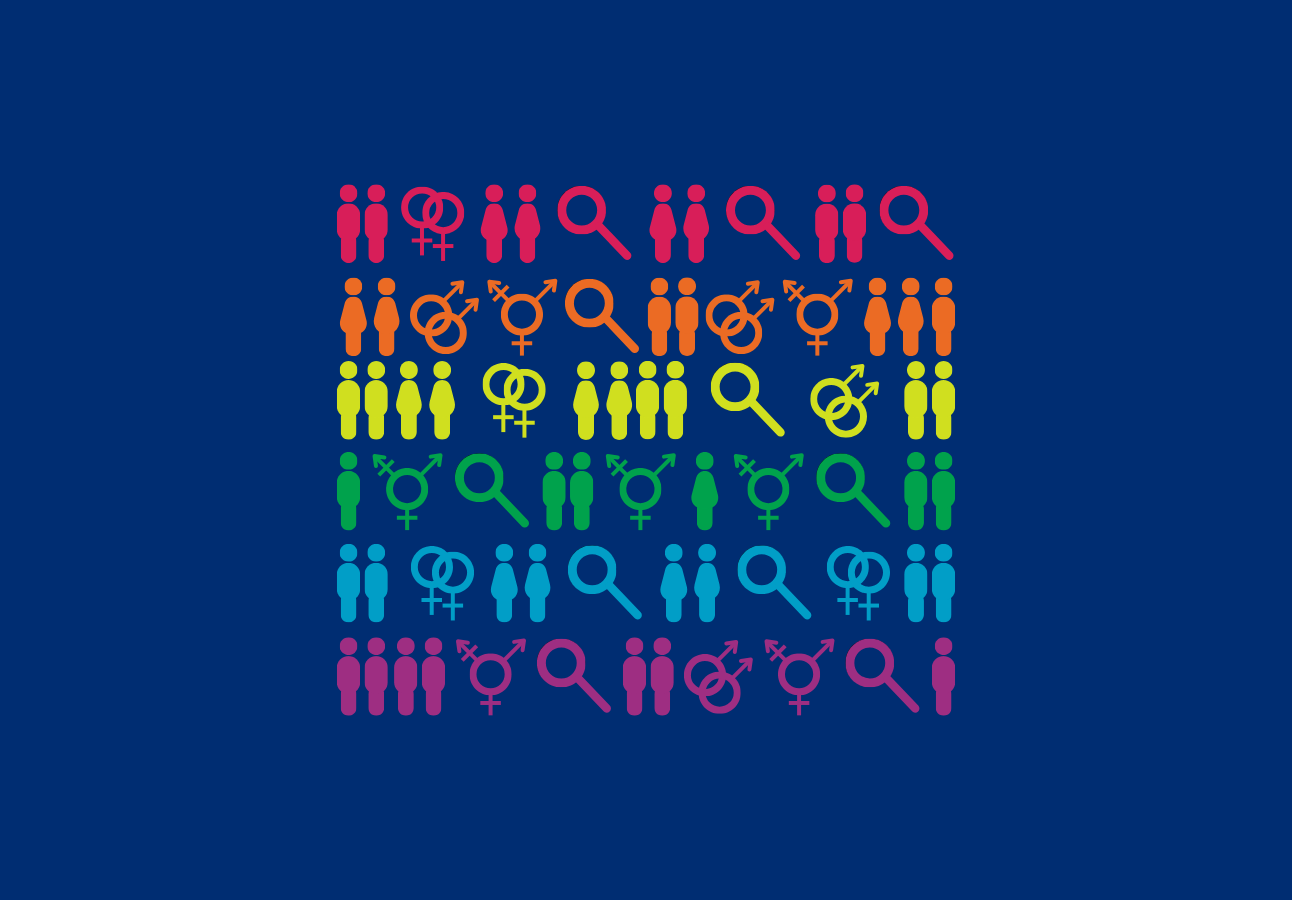
Supporting GBT men: The Dyn Project
Dyn, meaning man in Welsh, is a project in Cardiff offering support across Wales to gay, bisexual, trans and heterosexual men who have experienced domestic abuse. Collette Eaton-Harris met with Simon Borja and Carol Stringer of the Dyn Project to find out more about the services they offer.
Collette: Can you tell us how the Dyn Project started?
Simon: The Dyn Project was launched over 10 years ago in 2006. The project started up on the back of the Women Safety Unit. We were approached by James Rowlands (currently domestic abuse, sexual violence and VAWG coordinator, Brighton, Hove and East Sussex) who was studying at Cardiff University at that time, with a proposal of setting up a service for male victims.
At that stage we didn’t know what Dyn should look like, what the barriers for men accessing support were, what the data would indicate or where the need was, so it was kind of starting from square one. There were so few male services, it was difficult to have a clear idea of the model.
We managed to get some funding from Welsh government and we started a pilot project. Very much of the focus in the early days was whether we should have a service which was for all men, or whether we should only be for gay, bi and trans men. I think one of the assumptions people still make with the Dyn Project is either that we only work with gay, bi or trans men, or that we only work with heterosexual men. Actually we work with all men regardless of sexuality or whether they are cis or trans men.
Collette: And do you have an idea of how many men are accessing your services annually?
Simon: Yes, I’d say we get about, between 200 and 250 come to us through the advocacy service in Cardiff, that’s men who can access one-to-one support. We get about between 700-800 calls to our helpline for Wales, so through that we’re offering support for men who are calling us from across Wales.
We do get some calls from England which are then referred to the Men’s Advice Line.
But we’re actively working with easily, I’d say, between 600-700 men per year. So, we don’t just constantly signpost men, so we do direct work with men, we do safety planning, risk assessments, we liaise with the police, give them housing advice. So we’re not just saying, “okay David, thanks for calling us, why don’t you contact so and so in your area?” We’re doing a lot of ground work and the background work as well.
Collette: Can you say a bit more about what that direct work entails?
Carol: Well I’m an IDVA, an independent domestic violence advisor. I answer the helpline calls, I support clients face-to-face, I do all the safeguarding, I put all that in place, and I advocate for them. I’ve been here for three years with Safer Wales, and it’s going from strength to strength.
When a client comes in I’ve got no idea of his sexuality so I tailor the support I offer to the needs of the client. It’s about the client and what they want and what they expect from the service, and I’ll tailor it to that. I’ll say to them I’m not here to judge, I’m not here to make any judgment on them whatsoever, all I ask from them is complete honesty when they’re completing any assessments with me. A lot of what they tell me they don’t recognise as abuse. We complete a self-assessment and when they read it back they’ll go, “oh my God, I didn’t realise that was abuse at all, I didn’t realise that was abuse”. Anything that’s threatening or that makes you feel uncomfortable, or physically hurts you, or makes you feel bad, is deemed to be abusive and in a relationship that shouldn’t happen.
Another part of the work is thinking about who is at risk and in what way. When the referral comes through to me I read that and look for any safeguarding issues around that client; tendency for depression, self-harm, whatever it might be. Then I will check with relevant agencies, i.e. probation, or if they’ve come from another area, that police force area, to see if this client and the perpetrator are known to those services, and in what capacity they’re known.
It’s important to do background checks so that you’re not helping a potential perpetrator to perpetrate. You don’t want to give the perpetrator tools to equip them to become better perpetrators. My goal is to safeguard and listen; and find that right support and put everything in place for that person to stay safe, and anybody else around them. You know, a perpetrator needs to be safe, he may be perpetrating but he still needs to be safe.
Collette: It’s unusual for many domestic abuse services to get large numbers of referrals for male victims, so I was wondering what barriers you find your clients have come across before they’ve found your service?
Carol: Definitely, homophobia, I can’t believe it still happens in this day and age to be honest. I recently supported a client, he was out of area, he called me and I completed a risk assessment. It wasn’t domestic abuse that he was going through, it was homophobic abuse. The neighbours were threatening him, they were really aggressive to him, they were really abusive. He was absolutely petrified to be in his own home. I advocated for him with housing in another area, making the calls, telling them that this guy is not safe in this house. He had experienced domestic abuse, but at this particularly time it wasn’t domestic abuse that was the pressing issue. He was in fear for his life because of homophobic abuse. He’d had somebody actually threaten him with a shot gun and he was frightened to go home. So I had to find somewhere else for him to go to be safe. Even though it wasn’t domestic abuse, I didn’t just say to this guy, “well that’s not domestic abuse, I’m sorry, I can’t support you”, it’s about the safety, it’s about keeping everybody safe, and taking those steps, and helping them to make those changes to keep themselves safe as well.
Simon: I think lots of men, and this is very common, don’t recognise that they’re a victim of domestic abuse. I think as well, if we think of heterosexual men it could be issues around masculinity and pride, but with gay, bi and trans men, I think we see much more fear of being outed, disclosing who they are. And confidence in the police; because that’s another thing for us, most of our referrals do come from the police. So, if gay men don’t present at the police they might not know about the Dyn Project.
Collette: And is low confidence in the police something that is changing for GBT men?
Simon: I think it’s something that’s changing and I think that we’re very careful as a project, even doing a podcast like this, we don’t keep saying the same line as, gay men won’t present to a service, gay men think no one believes them, because that can further this fear of not being believed.
We want to be a bit more proactive because actually, we do support GBT men. We’ve got 235 referrals, about 20-30% of them would identify as gay or bi men. We do have some experience of working with transgender men, but the majority of our service users are gay or bisexual. So we do get gay men who access the service, who want the service, who want the support. But even then a lot of men will come here, regardless of gender or sexual orientation, not expecting support, not expecting help, that’s quite consistent.
Collette: So, their experience previously has been that services are not able to work with them directly but just refer them on?
Simon: Just refer them on. Or they’ll experience something like minority stress, believing that there aren’t people out there that will help you, that people will laugh or ridicule. With domestic abuse, because the majority of victims are women, it’s what’s seen in the media, what’s known; “this is what heterosexual men do the heterosexual women”. So, GBT men don’t fit into that narrative, that storyline.
Carol: Yes and it’s also professionals who sometimes don’t recognise abuse in same sex relationships. I worked with a man who went to London to try and source support around housing, he was a very high-risk victim of domestic abuse. And when he approached this service in London, it was like they didn’t believe he was in a relationship with a man. They wouldn’t accept that he was in a gay relationship. He felt very outraged. He was made to feel very small and belittled. He ended up coming back to Cardiff where he wasn’t safe because they wouldn’t accommodate him there, and I think that’s an issue. There are people out there still working in public services that are not accepting of GBT individuals or their experience of domestic abuse. When the person behind the counter spoke to my client, he said, “oh your friend”, it wasn’t his friend, it was his partner, and that’s still happening out there, even in the professional sector, and I think that’s really sad. Even though the client was saying, “we were partners, we were in a relationship, we’ve been living together for seven years”, this person behind the counter just would not accept that they were in a relationship and just kept referring to his partner as his friend, and it just really upset and hurt this client.
Simon: We did some work at BBC Wales in November last year. We managed to get two case studies of two men who wanted to share their experiences. And specifically as a project we wanted to target GBT men as kind of reaching out, because we know most of our referrals are heterosexual men. We know that there are many GBT men out there that are just not aware that they’re in abusive relationships, so we wanted to use that story, those case studies to reach out to men to come forward.
Collette: What advice you would give to projects who are thinking about their provision for GBT men?
Carol: For us, it is a men’s service, regardless of sexuality. If you’re a man and you’re experiencing domestic abuse in any way, shape or form, we’re a service that can offer you support, it’s about keeping them safe, and it’s important that you put that across to men so they feel able to approach you.
You may also be interested in


Men and boys

